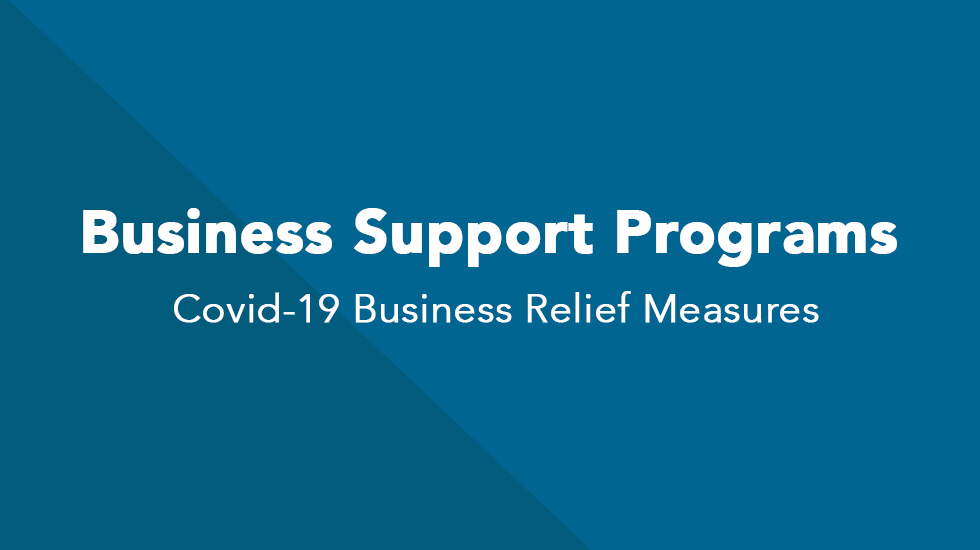
Current Business Support Programs

FEDERAL COVID-19 BUSINESS RELIEF MEASURES:
Tourism & Hospitality Recovery Program
- For eligible businesses in the tourism and hospitality industry (e.g., hotels, restaurants, travel agencies, tour operators, convention centres, convention and trade show organizers)
- Support through wage and rent subsidies. Starts at 40% of the maximum subsidy for Canada Emergency Rent Subsidy (CERS) and Canada Emergency Wage Subsidy (CEWS) for businesses with a 40% current-month revenue decline to a maximum rate of 75% (for those with a current-month revenue decline of 75% or higher). Subsidy rates will be reduced by half from March 13, 2022 to May 7, 2022.
- Top-up rate: An additional 25% for Lockdown Support pro-rated for the number of days under a public health restriction.
Hardest-Hit Business Recovery Program
- For businesses that do not qualify for the Tourism & Hospitality Recovery Program
- Wage and rent subsidies, starts at 10% of the maximum subsidy for Canada Emergency Rent Subsidy (CERS) and Canada Emergency Wage Subsidy (CEWS) for businesses with a 50% current-month revenue decline, up to a maximum rate of 50%, for those with a current-month revenue decline of 75% or higher. Subsidy rates will be reduced by half from March 13, 2022 to May 7, 2022.
- Top-up rate: An additional 25% for Lockdown Support pro-rated for the number of days under a public health restriction.
Local Lockdown Program
- For businesses facing temporary local lockdowns or capacity restrictions of at least 50 per cent (as of Dec 19, 2021), regardless of sector.
- Same subsidy rates as the Tourism & Hospitality Recovery Program except minimum support and current-month revenue decline threshold is 25%, rather than 40% as of Dec 19, 2021.
Canada Worker Lockdown Benefit
- The Canada Worker Lockdown Benefit (CWLB) gives temporary income support to employed and self-employed people who cannot work due to a COVID-19 lockdown.
- It will provide $300 a week in income support to eligible workers who are directly impacted by a COVID-19-related public health lockdown or capacity-limiting restrictions (at least 50 per cent), up until May 7, 2022
- Workers may apply for any weeks their region is eligible between October 24, 2021 and May 7, 2022.
- Workers may apply for any eligible 1-week period for up to 60 days after that period has ended.
Click here for Canada’s COVID-19 Economic Response Plan
ONTARIO COVID-19 BUSINESS RELIEF MEASURES:
Targeted Relief for Business and People
Small Business Relief Grant
The government announced an Ontario COVID-19 Small Business Relief Grant for small businesses that are subject to closure under modified Step Two of Roadmap to Reopen beginning January 5, 2022. It will provide eligible small businesses with a one-time grant payment of $10,000.
Eligible small businesses will include:
- Restaurants and bars
- Facilities for indoor sports and recreational fitness activities (including fitness centres and gyms)
- Performing arts venues and cinemas, museums, galleries, aquariums, zoos, science centres, landmarks, historic sites, botanical gardens and similar attractions
- Meeting or event spaces
- Tour and guide services
- Conference centres and convention centres.
Eligible businesses that qualified for the Ontario Small Business Support Grant and that are subject to closure under modified Step Two of Roadmap to Reopen will be pre-screened to verify eligibility and will not need to apply to the new program. Newly established and newly eligible small businesses will need to apply once the application portal opens in the coming weeks. Small businesses who qualify can expect to receive their payment in February.
Ontario Business Costs Rebate Program
Businesses will get back 50% of their reported property tax and energy costs from the Province directly. This include:
- Education, and municipal property taxes
- Electricity, natural gas, propane, and heating oil
- Eligible businesses required to reduce capacity to 50 per cent, such as smaller retail stores, will receive a rebate payment equivalent to 50 per cent of their property tax and energy costs
- Eligible businesses required to close for indoor activities, such as restaurants and gyms, will receive a rebate payment equivalent to 100 per cent of their costs.
A full list of eligible business types will be available through a program guide in mid-January 2022.
Online applications for this program will open in mid-January 2022. Payments to eligible businesses will be retroactive to December 19, 2021.
Businesses will be required to submit property tax and energy bills as part of the application process.
Provincially Administered Tax Deferrals (improving cashflow for Ontario Businesses)
To help improve cash flows, we are providing a six-month interest- and penalty-free period to make payments for most provincially administered taxes. This will:
- Support businesses in the immediate term while capacity restrictions are in place
- Provide the flexibility Ontario businesses will need for long-term planning
- The six-month period will begin on January 1, 2022 and end on July 1, 2022.
- This measure will provide up to $7.5 billion in relief to help approximately 80,000 Ontario businesses.
Approximately 80,000 businesses will have the option to delay their payments for the following provincially administered taxes:
- Employer Health Tax
- Beer, Wine & Spirits Taxes
- Tobacco Tax
- Insurance Premium Tax
- Fuel Tax
- International Fuel Tax Agreement
- Gas Tax
- Retail Sales Tax on Insurance Contracts & Benefit Plans
- Mining Tax
- Race Tracks Tax
These measures will build on Ontario’s support for businesses and workers, including:
- Cutting wholesale alcohol prices to provide approximately $60 million in annual support to restaurants, bars and other businesses, as well as making it easier for business to create and extend patios and permanently allowing licenced restaurants and bars to include alcohol with food as part of a takeout or delivery order.
- Extending COVID-19 paid sick days until July 31, 2022 to keep workers safe and ensure they do not lose pay if they need to miss work for reasons related to COVID-19.
- Enabling an estimated $10.1 billion in cost savings and support to Ontario businesses in 2021, with more than 60 per cent, or $6.3 billion, going to small businesses, including:
- Supporting a reduction in Workplace Safety and Insurance Board (WSIB) premiums.
- Allowing businesses to accelerate write-offs of capital investments for tax purposes.
- Reducing the small business Corporate Income Tax rate to 3.2 per cent.
- Providing the Digital Main Street program, which helped more than 20,000 businesses across the province to increase their digital presence in 2020-21.
- Introducing and temporarily enhancing the Regional Opportunities Investment Tax Credit to encourage investments in certain regions of Ontario that have lagged in employment growth in the past.
- Providing targeted COVID-19 support through the Ontario Tourism and Travel Small Business Support Grant.
- Lowering high Business Education Tax (BET) rates for job creators.
- Increasing the Employer Health Tax (EHT) exemption from $490,000 to $1 million.
- Lowering electricity bills through measures such as the Comprehensive Electricity Plan, with the Province paying for a portion of high-priced, non-hydro renewable energy contracts.
- Providing targeted COVID-19 support through the Ontario Small Business Support Grant, which delivered $3 billion in urgent and unprecedented support to over 110,000 small businesses across the province.
Electricity Rate Relief Support
The Ontario government is providing electricity rate relief to support small businesses, as well as workers and families spending more time at home while the province is in Modified Step Two. For 21 days, starting at 12:01 am on Tuesday, January 18, 2022, electricity prices will be set 24 hours a day at the current off-peak rate of 8.2 cents per kilowatt-hour, which is less than half the cost of the current on-peak rate.
The off-peak rate will apply automatically to residential, small businesses and farms who pay regulated rates set by the Ontario Energy Board and get a bill from a utility and will benefit customers on both Time-of-Use and Tiered rate plans. This will provide immediate savings for families, small businesses and farms as all Ontarians work together to slow the spread of the Omicron variant.”
Help for Businesses in Ontario Link
Canada Business App

– COVID‑19 support
– Newest programs and services
– Grants